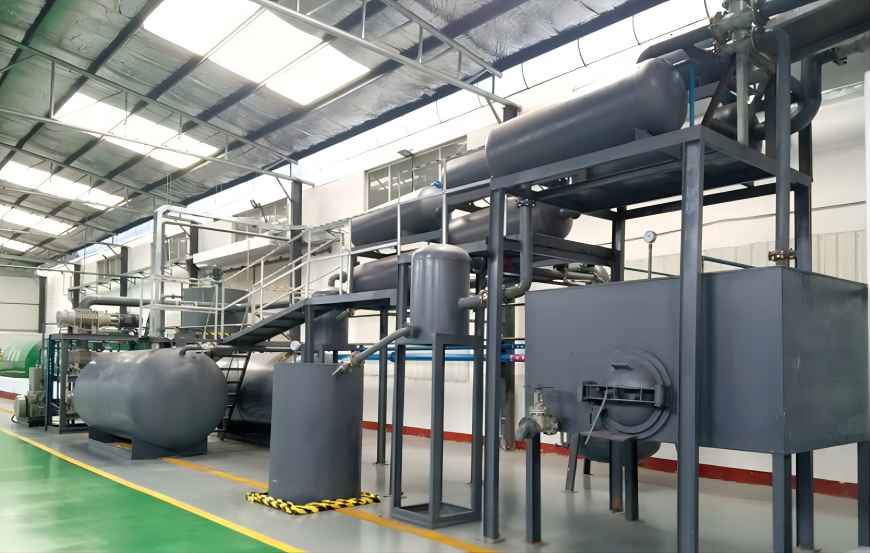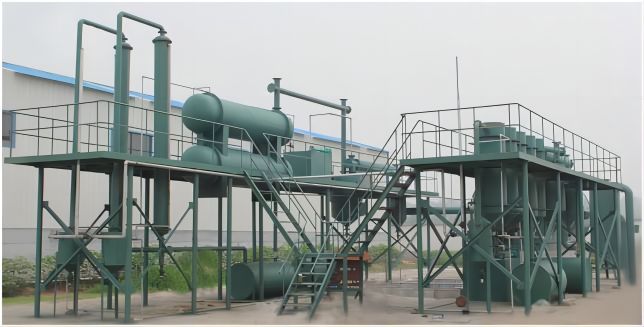Used Motor Oil Recycling: Everything You Need to Know
Used motor oil recycling is a vital component of environmental conservation efforts worldwide. It is the process of collecting, refining and reusing or disposing of used motor oil in an environmentally responsible manner. This article aims to shed light on the importance, benefits, and methods of recycling used motor oil, as well as explore alternative options, regulations, and how individuals can contribute to this eco-friendly initiative.

What is Used Motor Oil Recycling?
Used motor oil recycling involves the collection and reprocessing of oil that has already been used in engines. Instead of discarding it, this oil can be cleaned, purified, and re-refined to make it suitable for use in engines once again or other industrial applications. Recycling used motor oil helps reduce the demand for new oil extraction, which can be ecologically damaging and resource-intensive.
Why is it Important to Recycle Used Motor Oil?
- Environmental Impact: Used motor oil is a hazardous substance when not properly disposed of. It contains harmful contaminants such as heavy metals, arsenic, and lead, which can seep into the soil and water if not managed correctly, causing pollution and harm to ecosystems.
- Resource Conservation: The recycling of used motor oil conserves valuable natural resources. By reusing this oil, we decrease the need for new oil production, which involves drilling, refining, and transportation, all of which contribute to environmental degradation.
- Energy Savings: The process of recycling used motor oil is often more energy-efficient than refining crude oil. This leads to a reduction in greenhouse gas emissions and a lower carbon footprint.
What are the Benefits of Recycling Used Motor Oil?
Recycling used motor oil yields numerous benefits for both the environment and society as a whole:
- Pollution Reduction: Proper recycling prevents the contamination of soil and water bodies, safeguarding the health of ecosystems and wildlife.
- Energy Efficiency: Re-refining used motor oil consumes less energy than producing new oil, making it a more sustainable choice.
- Economic Benefits: Recycling used motor oil can lead to job creation in the recycling and re-refining industries, contributing to local economies.
- Reduced Greenhouse Gas Emissions: Recycling helps reduce the carbon footprint associated with the oil production process.
How to Recycle Used Motor Oil?
Recycling used motor oil is a straightforward process, but it requires adherence to specific guidelines:
1. Where to Find Recycling Centers
- Local Recycling Centers: Most communities have dedicated recycling centers or drop-off points for used motor oil. Check with your local government or use online resources to find the nearest one.
- Auto Parts Stores: Some auto parts stores and repair shops may accept used motor oil for recycling.
2. What Types of Containers are Accepted
Recycling centers typically accept used motor oil in the following containers:
- Clean, leak-proof plastic containers with tight-fitting lids
- Reusable oil change containers
- Drain pans
3. How to Prepare Used Oil for Recycling
Before taking your used motor oil to a recycling center, follow these steps to ensure it is ready for recycling:
- Use a clean container: Transfer the used oil into a clean, dedicated container with a tight-fitting lid, free from contaminants like water, coolant, or other chemicals.
- Do not mix: Never mix used motor oil with other fluids or substances, as this can complicate the recycling process.
- Transport safely: Secure the container and transport it to the recycling center without spilling or leaking any oil.

What Happens to Used Motor Oil After it is Recycled?
1. The Recycling Process
- Collection: Used motor oil is collected from recycling centers and designated drop-off points.
- Filtration: The oil is filtered to remove impurities, such as dirt, metal particles, and additives.
- Re-refining: The cleaned oil is then re-refined through a process that removes contaminants and restores it to a quality suitable for reuse.
- Testing: The re-refined oil undergoes rigorous quality testing to ensure it meets industry standards.
- Reuse: The recycled motor oil can be used as a lubricant in engines, hydraulics, or as an industrial fuel, depending on its quality.
2. Reusing Recycled Used Oil
Recycled used motor oil can be used for various purposes, including:
- Lubrication: High-quality recycled oil can be reused as engine oil, extending the lifespan of engines.
- Industrial Applications: Recycled oil can serve as a lubricant in various industrial processes, reducing the need for new oil.
- Energy Production: Some facilities use recycled oil as an alternative fuel source.
Alternatives to Recycling Used Motor Oil
In addition to recycling, there are other eco-friendly options for managing used motor oil:
- Reusing Used Oil for Other Purposes: Used motor oil can be repurposed as a rust preventative, wood preservative, or even for making oil-based paints.
- Composting Used Motor Oil: Some experts advocate for the composting of used motor oil, although this method is less common and requires careful handling.
Regulations and Laws Governing Used Motor Oil Recycling
EPA Regulations
The Environmental Protection Agency (EPA) in the United States has established stringent regulations for the management and recycling of used motor oil. These regulations govern the proper handling, transportation, and disposal of used oil to prevent environmental harm.
State Laws
Many U.S. states have their own laws and regulations concerning used motor oil recycling. It’s essential to be aware of and comply with your state’s specific requirements.
How to Become a Certified Used Oil Collection Center?
If you’re interested in establishing a used oil collection center, you’ll need to become certified by your state’s environmental agency. The process typically involves meeting specific requirements related to equipment, storage, and transportation, as well as demonstrating a commitment to environmental responsibility.

Conclusion
Recycling used motor oil is a simple yet impactful way to reduce pollution, conserve natural resources, and promote a sustainable future. By following the guidelines outlined in this article, you can play an essential role in protecting the environment and contributing to a cleaner, greener planet. Remember that every drop of used motor oil properly recycled is a step towards a more sustainable and eco-friendly world. Join the movement and encourage others to do the same – together, we can make a significant difference.







